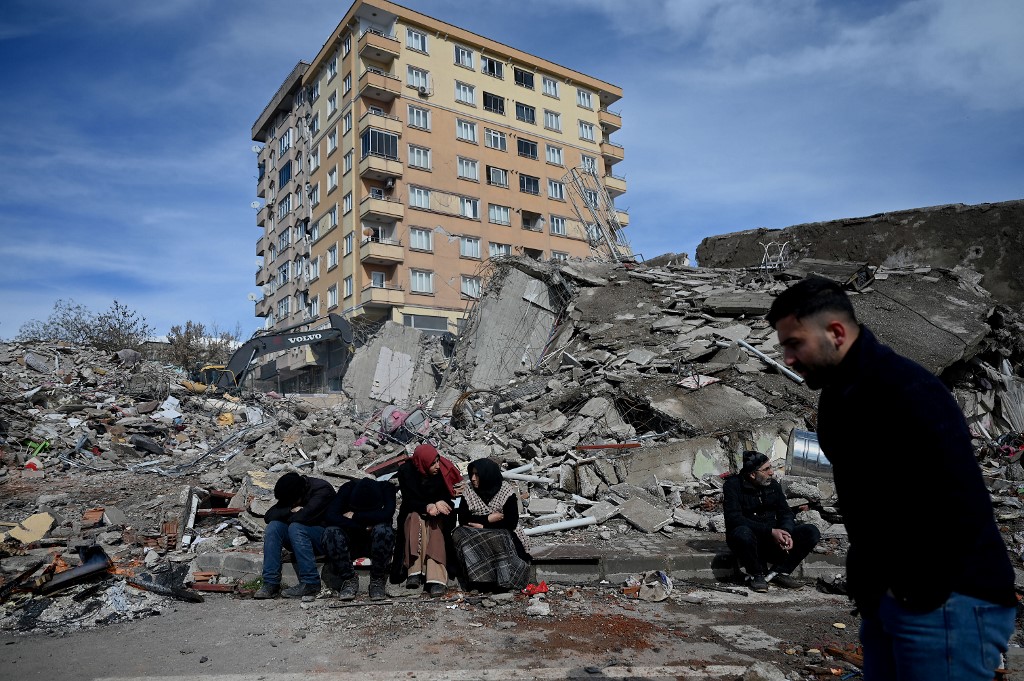US calls for more crossings for aid to northwest Syria, as UN announces Syria’s agreement

WASHINGTON DC, United States (Kurdistan 24) – The US called on Monday for more border crossings to be opened into rebel-held territory in northwest Syria to provide for an increased flow of humanitarian aid.
Shortly thereafter, the UN announced that Damascus had agreed to open two border crossings for its use from Turkey into northwest Syria. Until that announcement, only one border crossing was in use: Bab al-Hawa, in the far west.
The two new border crossings include Bab al Salam, just south of Gaziantep, near the epicenter of the first of the two earthquakes that shook Turkey last Monday, and Al Ra’ee.
Syria has said that the two border crossings will be open only to humanitarian convoys, and they will remain open for three months, at least initially.
That decision came as something of a surprise, as Syria had earlier taken a tough position against any reopening of the other border crossings.
Since the earthquakes also severely impacted Syria, Damascus is asking the UN for help in delivering aid to areas under its control. Quite possibly, Syrian President Bashar al-Assad thought he was more likely to get aid from the UN, if he accommodated their request.
US Call for More Border Crossings for Humanitarian Aid
In opening remarks in his press briefing on Monday, State Department Spokesperson Ned Price addressed the humanitarian tragedy in Turkey and Syria wrought by the earthquakes.
Turkey is receiving a great deal of international support, but aid to Syria, particularly in rebel-held areas, has been severely constrained by restrictions imposed by the Damascus government.
“The international community has a moral obligation to do everything in its power to get aid into affected areas of Syria,” Price said. “That includes urgently coming together in the United Nations Security Council to authorize additional crossing points from Turkey.”
“As we saw this past week,” Price continued, “having only one crossing means there’s a single point of failure,” and “we echo the repeated calls of UN officials for the UN Security Council to authorize additional border crossings.”
Price cited the statement issued on Sunday night by Washington’s UN envoy, Amb. Linda Thomas-Greenfield.
“People in the affected areas are counting on us,” she said. “They are appealing to our common humanity to help in their moment of need. We cannot let them down.”
Kurdistan 24’s Rahim Rashidi responded to Price’s remarks by noting that the Barzani Charity Foundation (BCF) had quickly delivered aid to certain areas of Syria and asked if the US might consider working through the Kurdistan Regional Government to get aid into northern Syria.
Indeed, the BCF was the first organization to get aid into the cities of Afrin and nearby Jinderis, predominantly Kurdish areas in Syria’s rebel-held northwest.
Read More: As the first international aid group in Syria’s Jinderis, BCF delivers 250 tons of aid
Price replied by detailing the speed and extent of the humanitarian support that the US has already sent to Syria, but he also said, “we’re going to look at all potential and appropriate ways to provide aid to the Syrian people.”
UN Announces Opening of Syrian Border Crossings
At roughly the same time that Price was speaking, the UN announced that Assad had agreed to open the two border crossings, following a meeting he had earlier on Monday with Martin Griffiths, the UN’s Under-Secretary-General for Humanitarian Affairs and Emergency Relief Coordinator.
In announcing Assad’s concession, UN Secretary General Antonio Guterres, stressed in a written statement “the utmost urgency” in “delivering food, health, nutrition, protection, shelter, winter supplies and other life-saving supplies to the millions of people affected.”
Reporting late on Monday, the BBC said that some 37,000 people have died as a result of the earthquakes. Fatalities numbered over 31,000 in Turkey and more than 5,700 in Syria, it stated.
The real figures, however, are probably much higher. Al-Jazeera has reported that Turkey counts only those fatalities that have been identified—which would be only about half of those who have died.
Moreover, a great deal of work remains, even as the rescue operation is coming to a close. Generally speaking, people do not survive more than a week without food and water, and ever fewer people will be found alive.
As the mission shifts to recovery operations, including the clearing of rubble, the death toll is likely to rise substantially. Indeed, on Saturday, Griffiths suggested that the fatalities would likely rise above 50,000.
